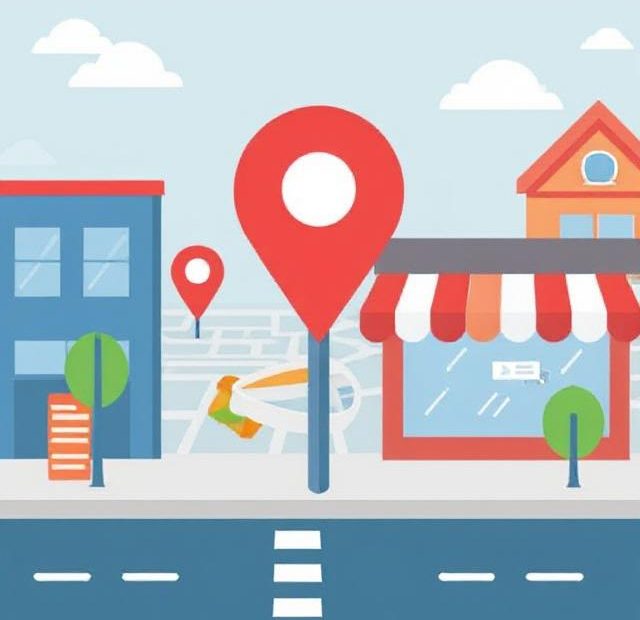When it comes to getting more traffic and visibility for your local business, two of the most powerful digital marketing tools are Local SEO and Pay-Per-Click (PPC) advertising. Both can drive qualified leads from your city or region, but they work very differently—and knowing which one will deliver better results depends on your goals, budget, and timeline.
In this article, we’ll break down the key differences between Local SEO and PPC, compare their traffic-driving potential, and help you decide which strategy is the better fit for your business.
What Is Local SEO?
Local SEO is the process of optimizing your online presence to appear in local search results, especially on platforms like Google Maps and Google’s “Local Pack.” It helps nearby customers find your business when searching for products or services “near me” or in your city.
Key components of Local SEO:
-
Optimizing your Google Business Profile
-
Building local citations
-
Getting customer reviews
-
Creating locally relevant content
-
Using location-based keywords
Local SEO takes time to build but provides long-lasting, organic traffic with no cost per click.
What Is PPC (Pay-Per-Click)?
PPC is a form of online advertising where you pay each time someone clicks your ad. Platforms like Google Ads allow you to bid on keywords, so your business appears at the top of search results—often above organic listings.
Common forms of PPC:
-
Search Ads (text ads on Google)
-
Display Ads (image/banner ads on websites)
-
Local Service Ads (pay-per-lead, especially for service-based businesses)
-
Google Maps Ads (appear in the local pack with “Ad” labels)
PPC offers instant visibility, but once your budget runs out, the traffic disappears.
Local SEO vs. PPC: A Side-by-Side Comparison
| Feature/Aspect | Local SEO | PPC |
|---|---|---|
| Cost | Free (unless hiring an expert) | Cost per click (varies by industry) |
| Time to Results | Slow (3-6 months for growth) | Fast (can see results within hours) |
| Longevity | Long-term (sustainable traffic) | Short-term (stops when budget ends) |
| Trust & Credibility | High (seen as organic/trustworthy) | Lower (users often skip ads) |
| Click-Through Rate | Typically higher in local pack/map results | Often lower than organic, unless well-targeted |
| Maintenance | Moderate (ongoing content and updates) | High (constant monitoring and budget control) |
| Local Targeting | Strong (great for maps and city-specific) | Very strong (custom location targeting) |
Which Drives More Traffic: Local SEO or PPC?
1. Immediate vs. Long-Term Traffic
If you’re looking for immediate visibility, especially for a new business or time-sensitive promotion, PPC is the way to go. You can appear at the top of search results within hours of launching your campaign.
However, if your goal is consistent, sustainable traffic over time, Local SEO is the better investment. Once you’re ranked well on Google Maps or in organic results, you can attract a steady flow of leads without ongoing ad costs.
Verdict:
PPC wins for instant traffic.
Local SEO wins for sustainable long-term traffic.
2. Cost-Efficiency
With PPC, you pay for every single click—whether the user converts or not. In competitive industries (like law, HVAC, or dentistry), clicks can cost $10 to $50 or more. That adds up fast.
Local SEO may take time and effort upfront, but once optimized, it can continue driving traffic without paying per click.
Verdict:
Local SEO wins for cost-effectiveness over time.
PPC can be expensive but useful for short-term campaigns.
3. User Trust and Click Behavior
Many users scroll past the ads to find the top organic or map listings because they perceive them as more trustworthy. In fact, studies show that 70-80% of users ignore paid ads, focusing on organic results instead.
Being in the Google Maps 3-Pack often earns more clicks than paid ads, especially for businesses with positive reviews and complete profiles.
Verdict:
Local SEO builds more trust and usually earns higher click-through rates.
PPC is more visible but often gets fewer organic clicks.
4. Best Use Cases for Each Strategy
When to use Local SEO:
-
You’re targeting a specific city or neighborhood.
-
You have a limited budget and want to build long-term visibility.
-
You offer a location-based service (like plumbing, salons, or auto repair).
-
You want to rank on Google Maps and appear in local packs.
When to use PPC:
-
You need immediate results for a product launch or promotion.
-
You’re in a highly competitive market and organic rankings are slow.
-
You want precise control over targeting and keywords.
-
You’re running seasonal or time-limited offers.
The Best Strategy? Combine Both
While Local SEO and PPC each have their strengths, the real magic happens when you use both together strategically.
Why combine them?
-
You dominate both the paid and organic sections of the search results.
-
You can test keyword performance with PPC and apply the data to your SEO.
-
PPC drives immediate leads while SEO builds long-term visibility.
-
It gives your business multiple touchpoints in the customer journey.
For example, you might use PPC to launch a new service and Local SEO to grow your core offerings organically.
Final Thoughts
So, which drives more traffic—Local SEO or PPC?
It depends on your goals. If you want fast visibility and have the budget to support it, PPC delivers quick wins. If you’re looking for long-lasting, cost-efficient traffic and trust-building, Local SEO is your foundation.
For most local businesses, the smartest move is to start with Local SEO to build a strong online presence, then layer in PPC for strategic boosts when needed. Together, they create a powerful, balanced traffic engine that keeps your business visible, competitive, and growing.
Also, you can learn more about Rank Higher here.
